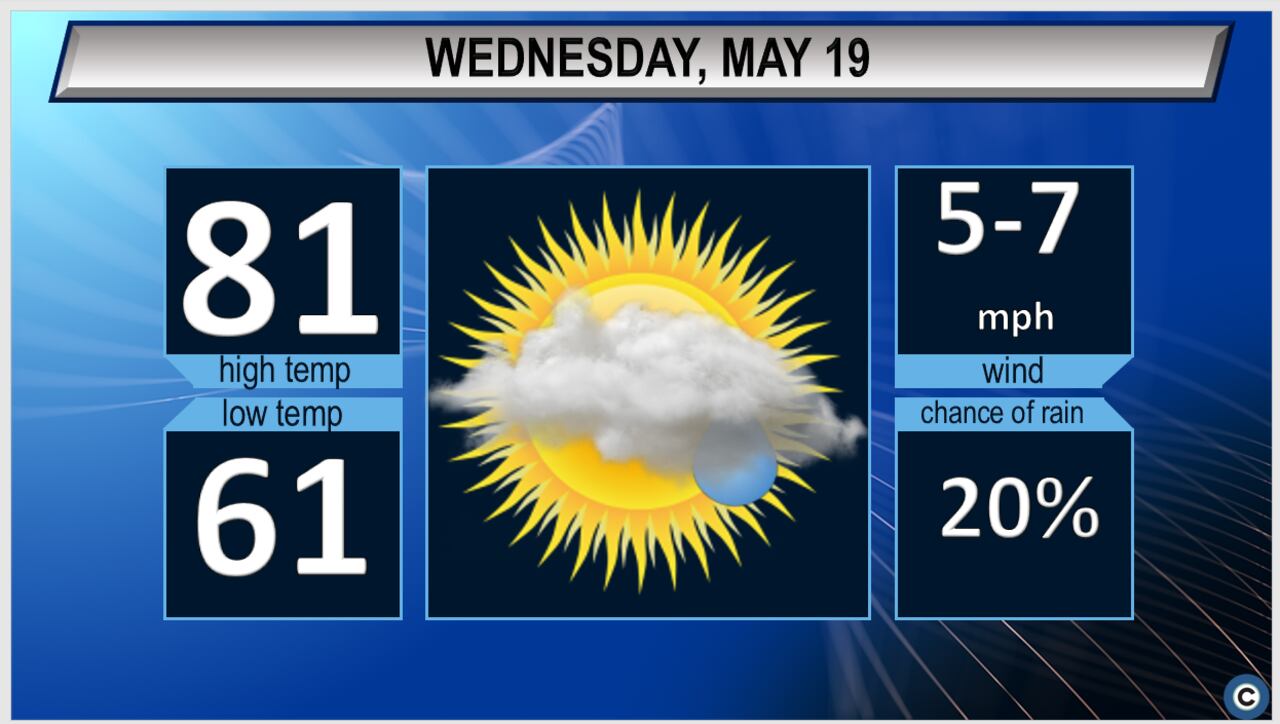Showers And Thunderstorms In NE Ohio: When To Grab Your Umbrella

Table of Contents
Understanding NE Ohio's Weather Patterns
Northeast Ohio's weather is heavily influenced by its unique geography. The proximity to Lake Erie plays a significant role, creating the well-known "lake effect" phenomenon. This effect is particularly pronounced during the colder months, resulting in significant lake-effect snow. However, the lake also impacts summer weather, contributing to increased humidity and the potential for severe thunderstorms. Additionally, NE Ohio's location means it's frequently impacted by weather systems moving across the Great Lakes region and from the Midwest.
The seasonality of showers and thunderstorms is also important to note. Spring and summer months typically see a higher frequency of these events, with late spring and early summer often bringing the most intense thunderstorms. Understanding these seasonal variations helps in planning and preparation.
Specific weather phenomena common to the region include:
- Lake effect snow: Cold air moving over the warmer lake water picks up moisture, leading to heavy snowfall downwind.
- Typical thunderstorm season timeline: Generally peaks from May through September, though isolated storms can occur outside of this period.
- Common weather events: Besides typical showers and thunderstorms, NE Ohio experiences occasional derechos (widespread, damaging windstorms) and occasionally severe hail.
Reliable Forecasting Resources for NE Ohio
Staying informed is critical when dealing with NE Ohio's unpredictable weather. Several reliable resources can help you stay ahead of approaching showers and thunderstorms.
- National Weather Service (NWS) Cleveland: The NWS provides detailed forecasts, warnings, and advisories specific to the region.
- Reputable local news channels: Many local news stations in NE Ohio have dedicated weather teams providing up-to-the-minute reports and forecasts. (Include links to a few reputable local news stations here)
- Weather apps: Numerous weather apps offer hyperlocal forecasts, radar imagery, and severe weather alerts directly to your smartphone. Popular options include AccuWeather, The Weather Channel, and WeatherBug. These apps often offer features like customizable alerts, hourly forecasts, and interactive radar maps.
Regularly checking these forecasts, particularly during the thunderstorm season (spring and summer), is crucial for effective preparation and safety. Consider setting up notifications for severe weather alerts on your chosen app or through your smartphone's built-in emergency alert system.
Recognizing the Signs of Approaching Showers and Thunderstorms
Learning to recognize the visual and audible cues of approaching showers and thunderstorms can significantly improve your safety.
- Visual cues: Darkening skies, distant lightning, and the formation of towering cumulonimbus clouds (anvil-shaped clouds) are all indicators of an approaching storm.
- Audible cues: The sound of distant thunder indicates a storm is relatively close. A significant increase in wind speed can also precede a thunderstorm.
- Weather radar: Learning to interpret weather radar imagery is invaluable. Different colors represent varying levels of precipitation intensity and can help you determine the timing and potential intensity of an approaching storm. (Include explanation of color codes typically used on weather radar.)
Understanding these signs allows you to take timely action and seek shelter before the storm arrives. Pay close attention to official weather warnings and advisories.
Preparing for Showers and Thunderstorms in NE Ohio
Having a well-stocked emergency preparedness kit is crucial for handling unexpected weather events. This kit should contain:
- Flashlight and extra batteries: Essential for navigating darkness during power outages.
- First-aid kit: For treating minor injuries.
- Bottled water and non-perishable food: In case of power outages or extended disruption.
- Radio (battery-powered): For receiving emergency broadcasts.
- Important documents: Store copies of important documents in a waterproof bag.
Beyond your emergency kit, consider taking these steps to secure your home:
- Trim trees and shrubs near your house to prevent damage.
- Bring loose objects indoors to prevent them from becoming airborne.
- Close and secure windows and doors.
During a thunderstorm, remember to follow these crucial safety measures:
- Avoid contact with water (including showers and baths).
- Stay away from high ground and tall trees.
- Unplug electronic devices to prevent damage from lightning strikes.
Conclusion
Understanding the unique weather patterns of NE Ohio, utilizing reliable forecasting resources, recognizing the signs of approaching showers and thunderstorms, and maintaining a well-prepared emergency kit are all vital steps for staying safe. Don't get caught off guard—prepare for NE Ohio's unpredictable weather. Stay informed by checking the forecast regularly and keep your emergency kit updated. Stay prepared for NE Ohio's showers and thunderstorms and ensure your safety during these frequent weather events.

Featured Posts
-
 Testosterone Positive Munguias Win Challenged By Surace
May 31, 2025
Testosterone Positive Munguias Win Challenged By Surace
May 31, 2025 -
 Legal Defeat Doesnt Halt Trump Unveiling The Next Tariff Strategy
May 31, 2025
Legal Defeat Doesnt Halt Trump Unveiling The Next Tariff Strategy
May 31, 2025 -
 Legendary Pop Group The Searchers To Play Final Show At Glastonbury
May 31, 2025
Legendary Pop Group The Searchers To Play Final Show At Glastonbury
May 31, 2025 -
 Why Ai Doesnt Truly Learn And How To Use It Responsibly
May 31, 2025
Why Ai Doesnt Truly Learn And How To Use It Responsibly
May 31, 2025 -
 Kostenlose Unterkunft Lockt Neue Bewohner In Diese Deutsche Stadt
May 31, 2025
Kostenlose Unterkunft Lockt Neue Bewohner In Diese Deutsche Stadt
May 31, 2025
